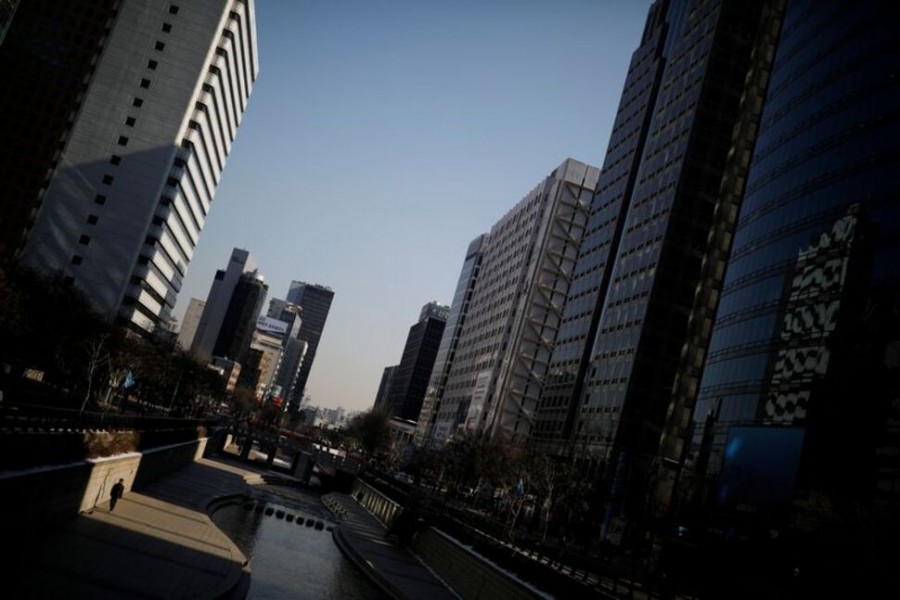South Korean economic growth unexpectedly picked up in the second quarter as strong consumption on eased COVID-19 restrictions offset poor exports, supporting the case for further central bank interest rate hikes.
The Bank of Korea estimated on Tuesday gross domestic product for the April-June period rose 0.7 per cent quarter-on-quarter, faster than the 0.6 per cent growth in the first quarter and above a 0.4 per cent rise tipped in a Reuters survey.
Economists said the upbeat data allowed the central bank, which this month delivered an unprecedented 50 basis-point rate hike, to continue tightening policy in the coming months.
"The economy will inevitably slow due to prolonged inflation and cooling exports, but today's solid readings are a good boost for the central bank seeing inflation as the prime risk for now," said Chun Kyu-yeon, economist at Hana Financial Investment.
The BOK has raised the policy interest rate by a combined 1.75 percentage points to 2.25 per cent from record-low 0.5 per cent since August last year, with economists predicting rates to be at 2.75 per cent by the end of this year. The bank holds its next policy meeting on Aug 25.
Private consumption jumped 3.0 per cent, the best in a year, after a 0.5 per cent decline in the first quarter as the government in April removed almost all COVID-19 social-distancing restrictions.
The strong consumption comes despite the BOK's aggressive series of interest rate hikes since August last year.
The economy also received a boost from increased government spending after the parliament approved a 62 trillion won ($47.33 billion) supplementary budget weeks after President Yoon Suk-yeol took office in early May.
However, exports and corporate spending on production facilities slumped amid a slowing Chinese economy and the fallout from a war in Ukraine as well as a global wave of monetary policy tightening to fight inflation.
Exports shrank 3.1 per cent in the April-June period from the preceding quarter, the largest decline in two years. Capital investment dropped for a fourth consecutive quarter by 1.0 per cent following a 3.9 per cent contraction in the January-March period.
Asia's fourth-largest economy grew 2.9 per cent in the second quarter year-on-year, faster than analyst expectations for 2.5 per cent growth but slower than 3.0 per cent growth in the first quarter.


